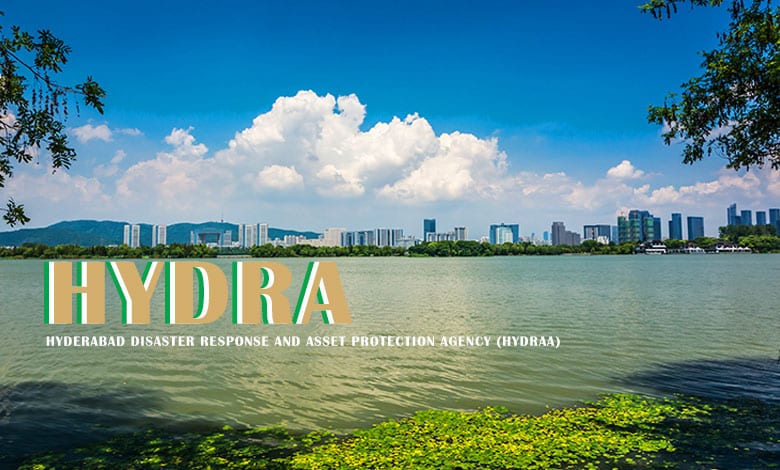HYDRAA and TGPCB Take Action: Restoring Hyderabad’s Precious Lakes
This partnership aims to restore the city's lakes, improve water quality, and ensure sustainable water resource management.

Hyderabad: In a significant move to tackle the pressing issue of lake degradation in Hyderabad, the Hyderabad Disaster Response and Recovery Authority (HYDRAA) has joined forces with the Telangana Pollution Control Board (TGPCB).
This partnership aims to restore the city’s lakes, improve water quality, and ensure sustainable water resource management.
During a high-level meeting at the TGPCB headquarters, officials unveiled a detailed plan to address the challenges threatening Hyderabad’s lakes and protect these critical ecosystems.
The Growing Threat to Hyderabad’s Lakes
Once an essential component of Hyderabad’s ecosystem, the city’s lakes now face severe challenges due to rapid urbanization and unchecked pollution. Key threats include:
- Industrial Effluents: Untreated waste from industries has led to the contamination of lake water.
- Untreated Sewage: Domestic sewage discharge further degrades water quality.
- Illegal Dumping: Construction and demolition waste deposited on lakebeds and banks has worsened the situation.
These issues have adversely affected aquatic ecosystems, reduced biodiversity, and impacted the availability of clean water for residents.
HYDRAA and TGPCB’s Action Plan for Lake Restoration
The collaborative meeting, chaired by HYDRAA Commissioner AV Ranganath and TGPCB Member Secretary G Ravi, laid out an actionable roadmap to rejuvenate Hyderabad’s lakes.
1. Regulating Industrial Effluents and Sewage
To prevent further contamination, officials stressed the need for strict enforcement of wastewater treatment protocols. Industries and households will be required to ensure proper treatment of waste before it is discharged into lakes.
2. Anti-Dumping Measures
A joint task force will combat illegal dumping activities by:
- Levying heavy fines on offenders
- Confiscating vehicles used for dumping waste
- Launching awareness campaigns to educate communities and developers about proper waste disposal
3. Real-Time Water Quality Monitoring
Advanced monitoring systems will be installed to track pollution levels in real time. This will enable authorities to respond promptly and implement corrective measures.
A Collaborative Approach to Conservation
HYDRAA emphasizes a collaborative model to ensure the long-term sustainability of lake restoration efforts. Partnerships with:
- Educational institutions
- Research organizations
- Environmental NGOs
These collaborations aim to bring technical expertise and innovative solutions to lake conservation initiatives.
Community Involvement as a Priority
The active involvement of local communities is central to the restoration strategy. HYDRAA plans to:
- Encourage residents to take ownership of nearby lakes
- Organize cleanup drives
- Conduct awareness programs to foster a culture of responsibility toward natural resources
Crackdown on Violators
Also Read: HYDRAA Resumes Demolitions in Ameenpur Municipality, Creating Tension Among Residents
Officials issued strict warnings to industries, gated communities, and real estate developers who violate pollution control norms. Key measures include:
- Increased Inspections: More frequent checks on compliance with environmental regulations
- Higher Penalties: Heavy fines for non-compliance with pollution and waste management rules
- Targeted Drives: Focused campaigns to identify and penalize habitual offenders
A Vision for Sustainable Development
HYDRAA and TGPCB’s combined efforts aim to strike a balance between Hyderabad’s rapid development and environmental sustainability. Their approach underscores that protecting lakes is not just an ecological necessity but also a social and economic imperative for the city’s future.
Why Lake Restoration Matters
- Water Security: Restoring lakes ensures the availability of clean water for residential, agricultural, and industrial use.
- Biodiversity Preservation: Lakes are home to diverse aquatic flora and fauna, contributing to ecological balance.
- Urban Flood Mitigation: Healthy lakes act as natural reservoirs, reducing the impact of urban flooding.
- Community Well-Being: Clean and restored lakes enhance the quality of life, offering recreational spaces and improving air quality.
The Road Ahead
The initiatives launched by HYDRAA and TGPCB signify a proactive approach to environmental conservation. By combining stringent regulations, advanced technology, and community participation, Hyderabad is poised to reclaim its reputation as a city of lakes.
As the city continues to grow, preserving its water bodies is crucial for a sustainable future. The coordinated efforts by HYDRAA and TGPCB provide hope for the revival of these vital resources, ensuring their longevity for generations to come.
Stay updated on Hyderabad’s lake restoration efforts and other environmental initiatives. Together, let’s build a greener, healthier future for our city!
